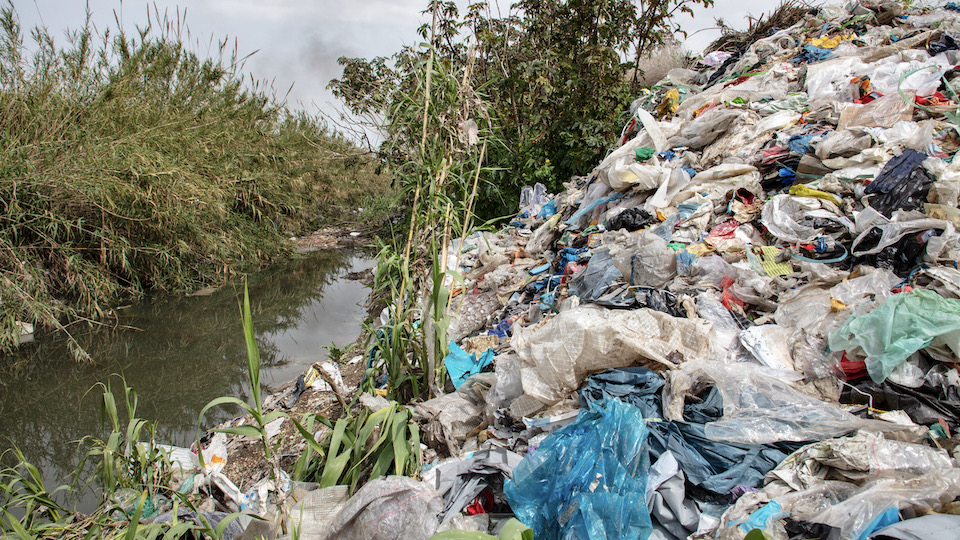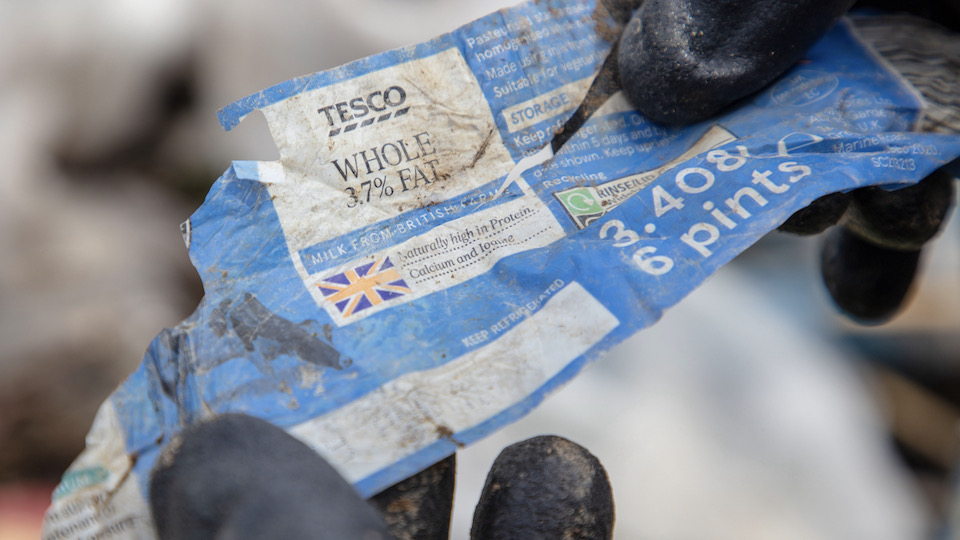Greenpeace: Illegal plastic waste exports endanger the environment

Recent research by the environmental organization Greenpeace shows that difficult to recycle or non-recyclable plastic waste from Europe is being illegally exported to Turkey. The organisation has visited ten illegal dumping grounds in the Adana region in southern Turkey. The waste dumped there is said to come mainly from the UK, but also from Germany, Poland and other EU countries.
In the Adana region, Greenpeace activists found plastic waste illegally dumped on roadsides, fields and near rivers. Much of the found waste had previously been shredded and transported in large bags, which Greenpeace also found in front of recycling plants in Adana. Often, the waste was on fire or had already been burnt.
The smoke and dust produced by the incineration process contains substances that are harmful to the health of a person and in some cases carcinogenic. This not only endangers people in the region, but also plants and animals. In addition, the waste pollutes bodies of water, thereby endangering entire ecosystems.
Problem has gotten worse
Greenpeace reported on illegal dumping grounds in Adana (in German) containing non-recyclable materials as early as November 2020. Among these materials was extruded plastic waste that had apparently been sorted out in a German recycling plant. Since then, the situation has “significantly worsened” and the dumps have increased in size.
Turkey has had an import ban on mixed and “mechanically sorted” plastics since January 2021. So far, this has had little effect: the majority of waste found originates in Great Britain. In addition, almost all of the dumping grounds also contain waste from Germany.

“It is appalling to see our plastic in burning piles on the side of Turkish roads. We must stop dumping our plastic waste on other countries,” said Manfred Santen, Chemist at Greenpeace Germany.
A reform of the Basel Convention (in German) has actually been restricting trade in plastic waste since January 2021. Since it came into force, the export of non-recyclable waste has violated EU and German law. So far, however, it has been shown “that partial export bans do not get to the root of the plastic problem, but only shift it to other countries”.
Germany exports one million tonnes of plastic waste
Since China imposed an import ban on plastic waste in 2018, most waste is now exported to Malaysia, Indonesia and Turkey. Turkey alone imported a total of 13.7 million tonnes of European waste in 2020. According to Greenpeace, this waste mainly comes from Great Britain, Belgium, Germany, Slovenia and Spain. Germany’s plastic waste exports to Turkey alone increased sevenfold between 2016 and 2020, reaching 136,000 tonnes in 2020. In total, Germany exported around one million tonnes of plastic waste to other countries last year. This is permissible if the plastic waste is recycled in the exporting country. However, Greenpeace also found a considerable amount of non-recyclable material in dumps in Turkey.
At the beginning of May, Wirtschaftswoche (Economic Weekly) reported (in German) that a Turkish recycling company had imported more than 400 containers of German plastic waste from the “yellow bag”, but had not recycled it so far. The company’s certificate for recycling household waste was revoked and authorities could now send at least 140 containers back to Germany. According to Wirtschaftswoche (Economic Weekly), 108 of these containers belong to the Berlin waste management company Alba. Greenpeace is accusing the Berlin-based company, as well as other German recyclers such as Meilo or Lobbe, of being “involved in dubious deals with now bankrupt export companies”. Apparently, the organisation has corresponding information from the recycling industry. “A large part of this waste cannot be recycled, and exporting it violates prevailing German and European law,” criticises Greenpeace expert Santen (in German).
Greenpeace demands that the Federal Government prevent the export of non-recyclable waste. The judiciary must also act: those who knowingly deliver plastic waste to unlicensed dumping grounds must be prepared to face “effective penalties”. In addition, the “enormous amount of plastic” must be reduced, namely without single-use plastics and with reusable concepts. Greenpeace is therefore also calling for a global agreement to stem the tide of plastic. (js)